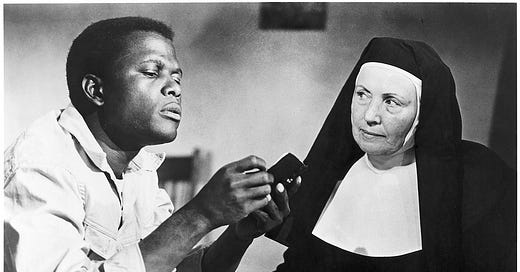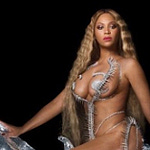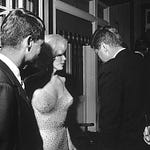Sidney Poitier’s impact on my life is right up there with the Catholic faith I was raised with. And though I would have occasion later in life to reevaluate the influence of each, it is impossible to extricate either from the person I am today. Nor would I wish to.
Catholicism provided the moral, ethical, and spiritual foundation, as well as the disciplined education that put my neurons to work, sharpened my vision, and developed my intelligence. Although I might not choose it today after studying comparative theology, it was the religious grounding I needed when I was growing up. Context is everything.
Those strict Catholic schools were an attractive alternative to public schools that remained segregated years after the Supreme Court’s landmark Brown decision in 1954. The court’s directive to desegregate with “all deliberate speed” was met with recalcitrant foot-dragging by white Americans who didn’t want their children mixing with people who looked like me.
It is impossible to overstate what Sidney Poitier’s films meant to me during that time. He would be derided later because, it was said, white people loved him so much. His onscreen portrayals of so-called “super-niggers” in films like Guess Who’s Coming to Dinner, A Patch of Blue, and To Sir with Love, though noble of intent, actually fed racist narratives that asked: “Why can’t they all be like that?” In other words, we will accept you only if you behave like this long-suffering, understanding, fictional Black man on the movie screen whose arcane doctorate is not enough to make him equal enough to marry a white woman.
It’s a valid argument
We know now though sad experience and countless viral videos that even after you meet all those expectations, jump through all those hoops, become as close to the fictional Sidney Poitier as possible, a Black man can still lose his life at the hands of a white police officer so scared of your Black skin that he or she will shoot first and try to get out of it later.
Nevertheless, context is everything. I can’t speak for anyone’s vision but my own. From where I stood, we were all trying to make ourselves acceptable to the white establishment during those cusp years of Civil Rights. Take a look at some of the photographs from the marches, demonstrations, and freedom rides. The men wore suits and neckties. The women dressed like they were going to church. There was a reason Rosa Parks was chosen to be the poster child of saying no to segregated busses and not the teenaged single mother who did the same thing. Our goal at that time was to project dignity. To demonstrate our value as human beings entitled to the guarantees of the Constitution, Bill of Rights, and the ideals of the Declaration of Independence.
I was brought up to believe that in order to be considered equal to, I had to be better than. When my all-Black Boy Scout troop was selected to participate in a Catholic parade on Peachtree in Atlanta, the scout master drilled us on precision marching weeks in advance. “You’re going to stick out like a sore thumb,” he said. “So everything you do must be perfect.”
That’s how it was. Your every action was a reflection on the entire Black race.
This was a time when many whites believed us to be so low and worthless that we should not be permitted to drink from the same water fountains or use the same restrooms. They believed we stank so bad we had to sit in the back of the bus. That we were so ignorant we didn’t have sense enough to cast a ballot.
It didn’t help that every Sunday we said Domine non sum dignus. Latin for “Lord I am not worthy.”
Within that context, it was monumental
To have someone on the silver screen who proved the lie in all those narratives. Today, Black thinkers and writers no longer care about “the white gaze” or “white savior” movies. But when Sidney was making his most impactful films, Black people understood the importance of having allies in the white world. Our progress depended on decent right-thinking white folks without whom there would have been no 1964 Civil Rights Act, no 1968 Voting Rights Act, no EEOC, no Black judges, congressmen, or state legislators.
There was an implicit understanding that to gain the support of decent whites who would support such legislation we Blacks had to put our best foot forward. Because we were ostracized from the mainstream, most whites had no idea who we were beyond onscreen caricatures that turned us into spooks, coons, and mammies to be mocked by white folks who had the gall to imitate and perpetuate these myths for their own profit.
Even whites who employed Black maids, groundsmen, chauffeurs, and laborers remained ignorant of who we were because keeping a job in those days required the wearing of a mask and the proverbial twoness of WEB DuBois. God forbid you should be thought of as uppity.
Made not born
Sidney Poitier was not always the knighted icon who will be honored and remembered as news of his death circulates throughout the country and around the world. He came to United States from a family so poor his mother broke up rocks one by one with a hammer in order to turn them into gravel she could sell.
When he first applied for a small acting job in a Harlem theater group, he was thrown out by the director and told to go back to his dishwashing job. Humiliated as he left the theater, Poitier asked himself this question: “Since I didn’t tell him where I worked, how did that man know that I’m a dishwasher? It had to be because of the way I speak.” In that moment, the real Sidney Poitier was born. For he resolved then and there never to be treated badly again on account of his speech.”
When the God of Genesis told Adam to go forth and name things, he was telling us that language is how we possess things. But it’s also how we possess ourselves. The way you speak lets others know how you think of yourself and how you expect to be treated. My old Stanford friend and mentor John L’Heureux once underscored this point when he wrote: “First language goes, then everything goes.”
In his way, Sidney Poitier embodied a specific vocabulary that spoke for kids like me when I was growing up during the cusp years of Civil Rights. It’s probably true that I internalized what he represented in ways I’m not even aware of. If that is a bad thing, all I can say is this: There are worse role models.
The late Joseph Campbell once said not everyone has a destiny. Only those who reach down into themselves and claim it. People like the Greek orator Demosthenes who cured a speech impediment by putting stones in his mouth. And people like Sidney Poitier who not only found his own particular way of speaking, which transcended his humble origins, but who also refused to use his talent to portray negative Black stereotypes. “I will not play that,” he said.
In such decisions, destinies are made
Poitier’s death comes as the nation grapples with 833 thousand COVID deaths and two opposing versions of what America is, has been, and should be. A time when truth itself appears to be up for grabs. A time when a considerable faction of the country is actively engaged in rolling back the clock to a time when Poitier’s films seemed not only relevant but necessary. If this is an inflection point in American history, let our memory of his life and work become the lens through which we see ourselves more clearly. And a light to guide us along the path that lies ahead.
It is no small thing that Poitier’s legacy includes the contribution he made to our better angels. Our best selves. The reach that must exceed our grasp if we are to become who we can be, and what we must be in order to survive the twisting winds of fate. But this is not a path we take alone, as the great actor himself pointed (below) out in the speech he made upon accepting his Honorary Lifetime Achievement Award in 2002.
Here’s to you, Sir Sidney, with gratitude and love.
Post Script: This is my first broken New Year’s resolution
Actually, I don’t make resolutions anymore. But I did make a promise to myself to write fewer essays this year and more short stories. I’m nearly finished with one such story but had to steal away for a few moments when I read of Poitier’s death this morning. My intention remains good, however, and I hope to be sending more fiction your way in the days ahead.
With sincere gratitude for your ongoing support—for your likes, shares, and subscribes—I wish you and yours the very best of this new year.
©2022 by Andrew Jazprose Hill
Thank you!















Share this post